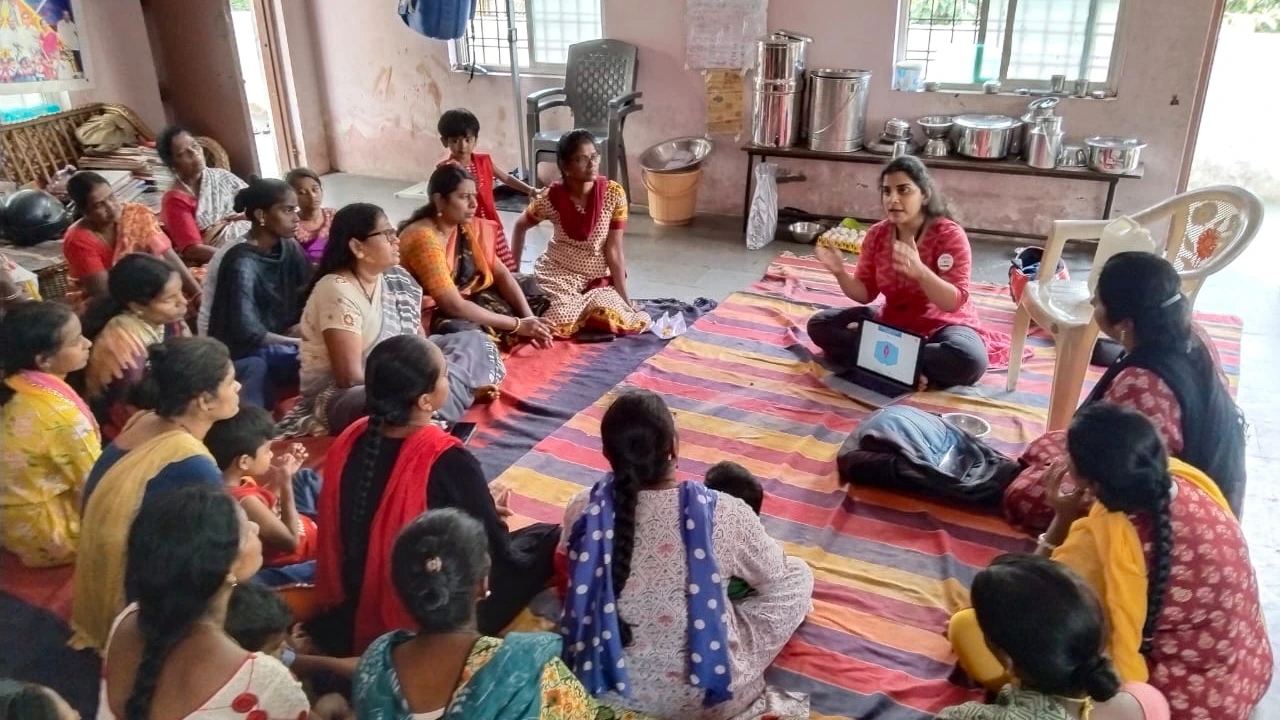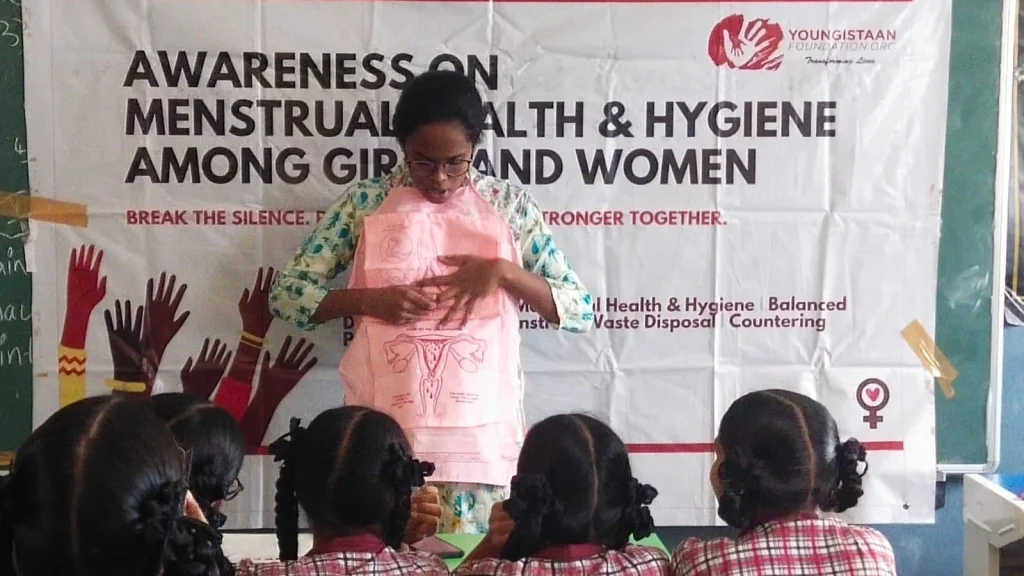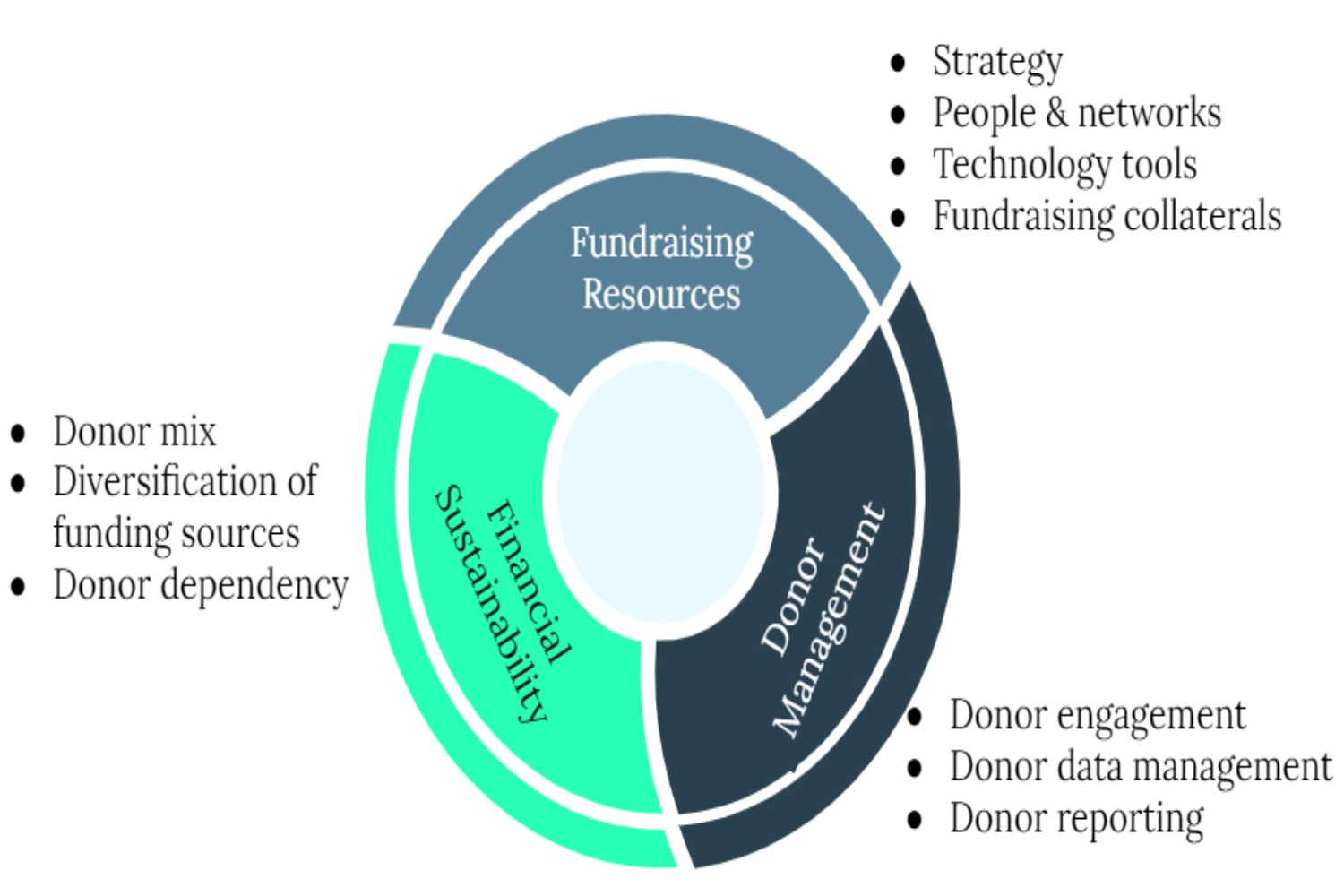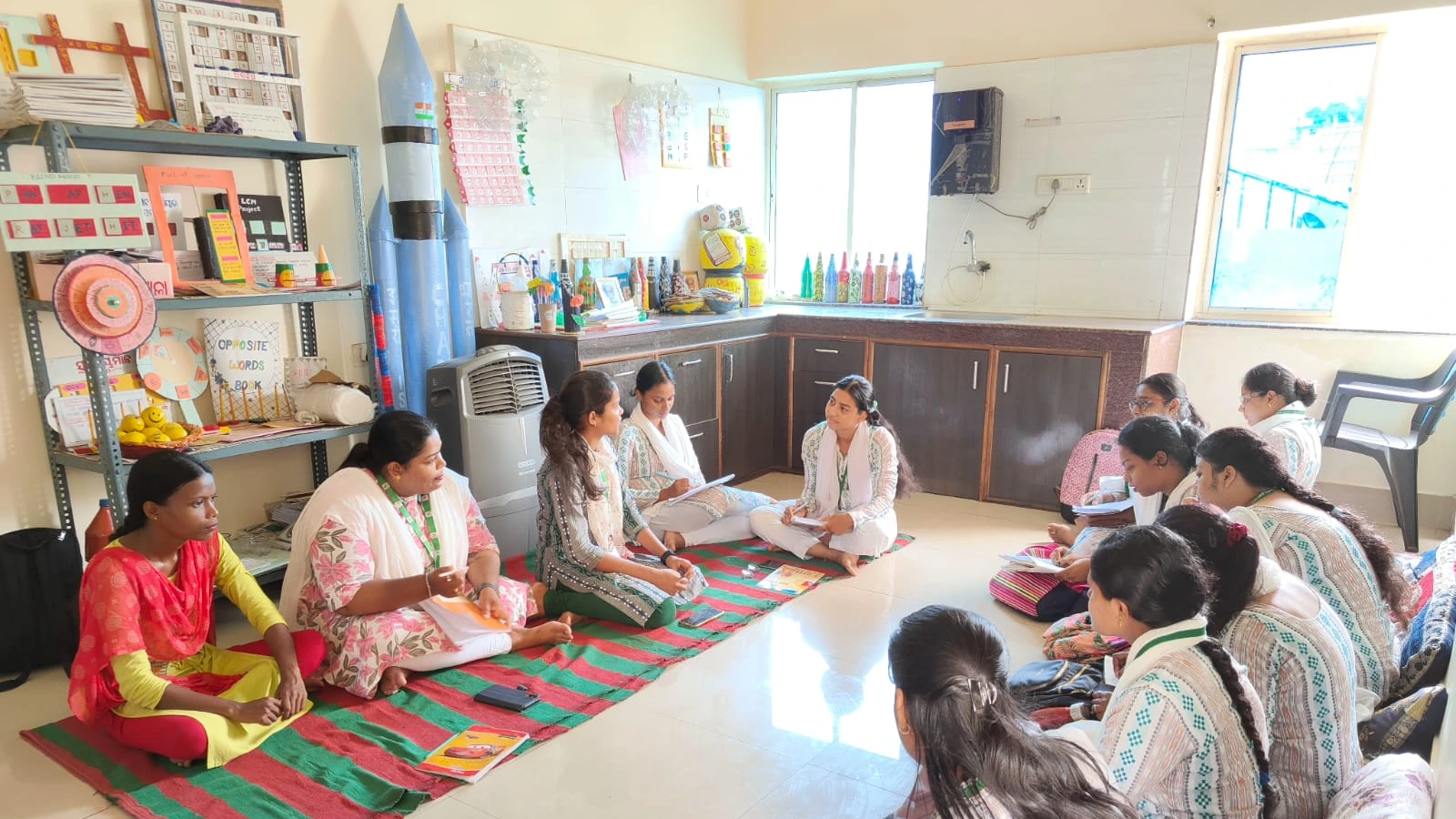Nurturing volunteers for impact
This article discusses the processes and challenges related to volunteer management, the need for acknowledging volunteers' contributions, and the importance of nurturing them as leaders.

Youngistaan started as a youth-driven initiative addressing hunger and homelessness. Over the years, it has expanded into programs on education, health, gender, climate and livelihoods—offering diverse opportunities for volunteers. Over the years, we have intentionally structured these programs to not only create impact but also harness volunteers’ skills to deepen and scale that impact.
Capacity building – enabling skills
Capacity building happens in two ways. The first is the path of intentional learning, which involves structured training sessions with defined objectives, such as SEL – Social Emotional learning, or menstrual health and hygiene workshops. These also include discussions on equity and social justice, for example, power dynamics in society—reminding us that community service is about the community, not about oneself. The second is through implicit learning, which happens organically through real-life experiences. This might be through facilitating a workshop for children, or while negotiating with a parent about a child’s behavior, or while acquiring essential social skills when navigating fieldwork.
During our capacity-building sessions, we occasionally encounter last-minute volunteer unavailability. For example, in our education program, training was originally designed to run for seven consecutive weekends. This model worked well in the past. However, as new batches of volunteers joined, we noticed a shift. Sustaining engagement over seven weekends became difficult.
Understanding this, our project coordinators adapted. Instead of rigid training sessions, they introduced shadow volunteering—a hands-on approach that blends learning with real-world experience. Through this volunteer-centric model, volunteers now attend training on Saturdays and step into the field on Sundays, shadowing senior volunteers in the community. This way, they don’t just learn in theory. They witness firsthand how sessions are conducted, making the experience more immersive and engaging.
This shift has helped new volunteers feel more connected to the work. It has increased retention and ensured a smoother transition into active volunteering. Of course, we know this model, too, may need to evolve. Volunteer engagement isn’t static. It needs continuous adaptation, something our project coordinators actively work on.
Many development practitioners argue that investing in volunteers is a waste of time because they eventually leave. But over the years, our experience has shown otherwise. When even one young person steps up to volunteer and is sensitized to social issues in a structured way, it not only changes how they view the social sector but also gives them a fresh perspective on their journey. The energy we invest in volunteers isn’t just about their immediate contributions. It is about helping them gain new experiences and a broader understanding of the world around them.

Nurturing volunteers as blossoming leaders
Youngistaan Foundation believes in servant leadership, leading by doing and setting an example. Just as talented players are nurtured into champions, Youngistaan shapes young volunteers into leaders each year.
Take Vasu, for instance. Once an introverted volunteer in the education program, he now embodies service-driven leadership. “If I’m in a room with five introverts, they start feeling like extroverts—I am that introvert,” he says. His transformation is evident in his actions. He shows up consistently, takes initiative, and focuses on solutions rather than obstacles. Vasu is just one example among many who have grown into leaders through Youngistaan.
But not every volunteer follows the same journey. Some struggle with the realities of the field, feeling unprepared when faced with setbacks—whether it’s a student unwilling to learn or a community hesitant to change. Helping volunteers navigate these challenges is crucial. At Youngistaan, we do this by offering mentorship, peer support, and reflective discussions on how to handle difficult situations.
The organization fosters an environment of creativity and self-discovery, where volunteers are not just contributors but integral to its growth. Youngistaan’s leadership style, that tries to be participatory and democratic, ensures open feedback loops and flexibility. This allows volunteers to explore and take ownership, rather than being micromanaged. This trust empowers them to think critically and make meaningful contributions.
Of course, challenges come with the journey. Volunteer commitment fluctuates due to work, family obligations, or travel. On a lighter note, we often joke with volunteers not to plan weddings or major events on Saturdays and Sundays, because those are the days they dedicate to Youngistaan! But we also recognize that life happens, and taking breaks is natural. Volunteering isn’t about us—it’s about them.
That’s why Youngistaan keeps its doors open. Some volunteers return, while others move on. However, we offer flexible ways to stay engaged—whether through virtual volunteering, skill-based contributions, research, or simply being allies who amplify our work. Some are even inspired to start similar initiatives in the cities they move to, carrying forward the spirit of service beyond Hyderabad.

Volunteer acknowledgment – celebrating impact
As we mentioned, the culture at Youngistaan goes beyond social service. Those who show up consistently deserve recognition for their dedication to volunteering. Since 2014, we have made it a point to celebrate volunteers’ birthdays every Sunday with personalized posters. A few years ago, we introduced Volunteer Diaries, featuring stories of volunteers who have completed six months with Youngistaan.
We also organize quarterly potluck meetings, basketball and badminton tournaments, food outings, and personal well-being sessions for volunteers. Additionally, we celebrate young volunteers by hosting panel discussions, where they share their experiences with a larger audience. We appreciate their contributions to these initiatives. Just like formal work, volunteering also deserves recognition.
Since 2019, we have introduced Volunteer of the Year and Program Volunteer of the Year awards, with a well-defined set of parameters for selection. To further boost team spirit, in 2024, we launched a rolling shield for the program that has consistently created the greatest impact, verified through key indicators.
We take pride in celebrating our volunteers internally. But the external recognition we have received highlights the collective impact we have made. Our organization has been honored at different levels—locally with the District Collector’s Appreciation Award, nationally with the Community Mobilization Asia-Pacific Award and the Manthan e-Inclusion and Accessibility Asia-Pacific Award, and globally with the Global Citizen Award by the U.S. Department of State for our work with youth across India. We also nominate volunteers for policy dialogues and social awareness conferences. This gives them a platform to drive meaningful change. These recognitions are more than just awards. They reflect the power of volunteering and the strength of working together.
Vijay, a volunteer from the Food and Nutrition program, shared, “I feel very happy and stress-free whenever I come here. I have volunteered at four different places. But nowhere else have I seen volunteer well-being being prioritized beyond just the work.”
That said, we are constantly learning and improving. If you ask whether we have a foolproof strategy for volunteer management, our answer would be no. While we have grown from a small team of five volunteers to over 200 active volunteers in Hyderabad city, there is no single perfect approach. However, what has worked for us is being present on the ground, understanding the perspectives of new volunteers, and maintaining meaningful connections.
Engaging corporates in meaningful volunteering
Even while working with various corporations and their employees, we recognize that each person has a different understanding of community service. Their motivations may not always align with our vision, and that is okay. At Youngistaan, we treat corporate volunteers just like any other volunteers—no special preferences and no hierarchy. They are introduced to our programs, and get immersed in the work we do. In the process, they participate in an experience that complements our ongoing initiatives. We ensure that employees and beneficiaries—whether children or other community members—interact on an equal footing, upholding the spirit of inclusivity and respect.
The feeling of “I am doing something great for you” should never emerge in any volunteer’s mind. This approach—where every volunteer, regardless of their background, is treated with the same respect—often brings people back. In fact, we have observed that at least 20% of the employees who first volunteer through their companies later return to Youngistaan in a personal capacity. Similarly, many of our regular volunteers introduce Youngistaan’s work to their corporate circles, encouraging more partnerships.
We refrain from one-time engagements with corporates. Instead, we request companies to commit to a one-year-long partnership. They can do this either by supporting our existing programs, or by co-designing a new initiative that aligns with our mission and benefits the communities we work with. Corporate employee engagement is then embedded within these long-term partnerships. This ensures that volunteering is not just a symbolic act but a sustained effort toward real impact.
At the core, it is about mutual learning, appreciation and collaboration—where every partnership moves at the same pace. This also ensures alignment between corporate engagement and community impact.



No approved comments yet. Be the first to comment!